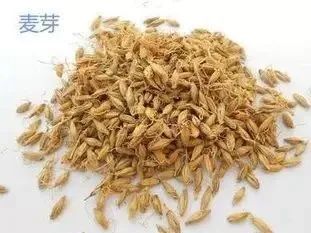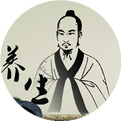Traditional Chinese Medicine Health Preservation  Before reading, please click the blue text above “Traditional Chinese Medicine Moxibustion Health Preservation“, then click “Follow” so that you can receive the highest quality articles, completely free subscription, please feel free to follow
Before reading, please click the blue text above “Traditional Chinese Medicine Moxibustion Health Preservation“, then click “Follow” so that you can receive the highest quality articles, completely free subscription, please feel free to follow 

Qi deficiency is a term in Traditional Chinese Medicine (TCM) that refers to a series of pathological changes and syndromes caused by insufficient vital energy (yuan qi). The term “qi” represents the most fundamental substance of the human body, formed by the combination of the essence (jing) from the kidneys, the qi derived from the spleen and stomach’s absorption and transformation of food, and the clear qi inhaled from the lungs. Qi deficiency generally refers to symptoms such as physical weakness, pale complexion, shortness of breath, fatigue in the limbs, dizziness, spontaneous sweating, low voice, etc. It includes the deficiency of yuan qi, zong qi, and wei qi, as well as the reduction of qi’s functions in promoting, warming, defending, consolidating, and transforming, leading to weakened bodily functions and decreased resistance to diseases. The fundamental activity of life is the movement of yuan qi in and out. Qi deficiency is a common syndrome, often caused by congenital insufficiency, malnutrition, aging, prolonged illness, major surgery, and excessive fatigue. Clinically, qi deficiency also includes syndromes such as lung qi deficiency, heart qi deficiency, spleen qi deficiency, and kidney qi deficiency.
What are the manifestations of a person with a qi deficiency constitution?
1 People with qi deficiency generally have a dull complexion and poor physical strengthIndividuals with qi deficiency often have a pale, lackluster complexion, and are prone to spontaneous sweating and shortness of breath. While a person with sufficient qi can climb several flights of stairs without issue, a person with qi deficiency may feel breathless after just three flights, with a rapid heartbeat.2 People with qi deficiency are taciturn and easily fatiguedThose with qi deficiency tend to be quiet and reluctant to speak, unlike those with sufficient qi who are energetic and actively participate in activities and express opinions. Qi deficient individuals prefer to avoid unnecessary interactions. What does being taciturn mean? It means that when you talk to them, they are reluctant to respond, and even a few extra words can tire them out. Qi deficient individuals are also easily fatigued, often feeling tired after a short walk, while others may not feel tired at all. Additionally, they often seek support when standing or sitting, appearing listless. In contrast, those with sufficient qi stand and sit upright and speak with confidence.3 People with qi deficiency are sensitive to cold and wind, and are prone to coldsIndividuals with qi deficiency are sensitive to cold and wind, and cannot tolerate coolness, often sneezing and catching colds easily, especially children. Some children may recover from a cold only to catch another after a brief visit to kindergarten, causing concern for their families. This is actually a manifestation of qi deficiency. In summary, qi deficiency indicates insufficient kidney qi, spleen qi, and lung qi. Among these, kidney qi is inherited from the mother, varying in abundance, while spleen qi is crucial; often, insufficient spleen qi leads to insufficient lung qi, making those with spleen qi deficiency more susceptible to external pathogens.4 People with qi deficiency easily experience abdominal bloating after eatingIndividuals with qi deficiency often experience abdominal bloating after meals because their spleen struggles to transform food effectively, leading to food stagnation in the body and resulting in bloating.5 People with qi deficiency have unformed stoolsIndividuals with qi deficiency find it difficult to form stools because the qi is insufficient to hold the stools, leading to easy slippage.6 What does the tongue of a person with qi deficiency look like?Individuals with qi deficiency often have teeth marks on their tongues. This occurs because qi deficient individuals have excess dampness that has not been expelled from the body, leading to swelling of internal organs and skin over time, which is generally not visible. However, the swollen tongue, pressed against the teeth for 24 hours, leaves many impressions when the tongue is extended. A thick coating on the tongue indicates heavy internal dampness. Normally, the tongue coating should reveal the tongue body, but a certain type of coating can cover the entire tongue, obscuring the tongue body, which in TCM is referred to as a “full tongue coating,” indicating significant internal dampness. The thicker the coating, the heavier the internal dampness. In addition to a full tongue coating, the thickness of the coating can also indicate the severity of internal dampness. A tongue with cracks in the middle suggests spleen and stomach qi deficiency. If the teeth marks on the sides of the tongue are not prominent, but the cracks in the middle are very obvious (everyone has cracks in the middle of their tongue, but in normal individuals, these cracks are not prominent because the coating covers them), it indicates poor spleen and stomach function, with insufficient spleen qi unable to nourish the tongue coating, resulting in noticeable cracks. Qi deficient individuals often have a swollen tongue. While some may have a thin tongue, they still exhibit teeth marks, indicating spleen qi deficiency. A tongue without coating or with a very thin coating appears pale, indicating deficiency of righteous qi, especially insufficient spleen and stomach qi. Individuals with this tongue appearance fall into two categories: one has suffered a major illness affecting the spleen and stomach, leading to a loss of tongue coating; the other has damaged their spleen and stomach due to improper diet, which is not a major illness. I once encountered a man whose tongue was completely smooth without coating. When I asked him, “How is your stomach qi so deficient?” he replied that he drinks heavily every day. How could his stomach not be harmed?
Maintenance Strategies for Individuals with Qi Deficiency Constitution
For those whose stomach has been harmed leading to insufficient stomach qi, the priority is to nourish the stomach qi. It is advisable to reduce water intake and instead drink barley tea, which can help generate stomach qi. Formula: Raw barley (Sheng Mai Ya) 30-60 grams. Method: Brew as tea. Note:1 It is essential to use raw barley, which has the function of generating stomach qi. Do not use roasted barley, as it reduces qi, while raw barley promotes qi. Some experienced TCM practitioners, when encountering severely ill patients with no tongue coating, will prescribe barley tea to help quickly generate stomach qi until the tongue coating returns, indicating recovery.2 You can also use 3 grams of raw astragalus (Huang Qi), 6 grams of Chinese yam (Huang Shan Yao), and 9 grams of raw barley (Sheng Mai Ya), boiled in water to drink as a substitute for tea. Consistent consumption over several weeks is beneficial for promoting stomach qi.
Formula: Raw barley (Sheng Mai Ya) 30-60 grams. Method: Brew as tea. Note:1 It is essential to use raw barley, which has the function of generating stomach qi. Do not use roasted barley, as it reduces qi, while raw barley promotes qi. Some experienced TCM practitioners, when encountering severely ill patients with no tongue coating, will prescribe barley tea to help quickly generate stomach qi until the tongue coating returns, indicating recovery.2 You can also use 3 grams of raw astragalus (Huang Qi), 6 grams of Chinese yam (Huang Shan Yao), and 9 grams of raw barley (Sheng Mai Ya), boiled in water to drink as a substitute for tea. Consistent consumption over several weeks is beneficial for promoting stomach qi.
 Before reading, please click the blue text above “Traditional Chinese Medicine Moxibustion Health Preservation“, then click “Follow” so that you can receive the highest quality articles, completely free subscription, please feel free to follow
Before reading, please click the blue text above “Traditional Chinese Medicine Moxibustion Health Preservation“, then click “Follow” so that you can receive the highest quality articles, completely free subscription, please feel free to follow 



